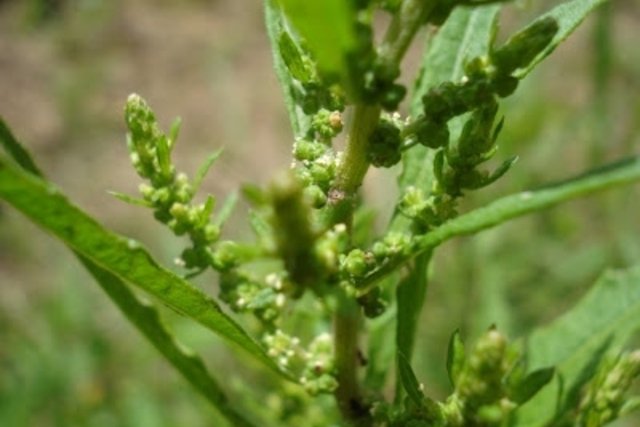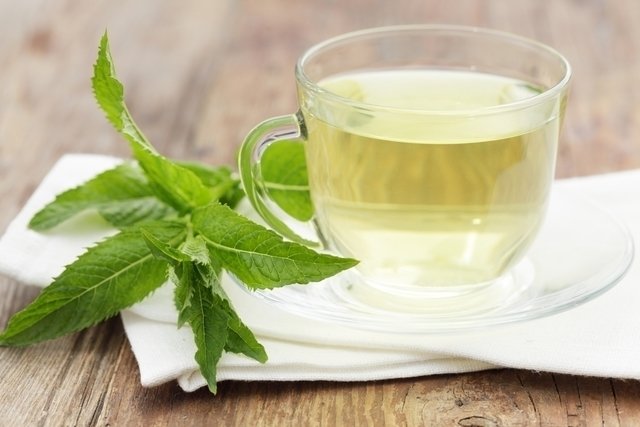Mastruz is a medicinal plant, also known as yerba de santa maria or Mexican tea, which is widely used in traditional medicine to treat intestinal worms, poor digestion and to strengthen the immune system.
This plant has the scientific name of Chenopodium ambrosioides (synonym Dysphania ambrosioides) (1). Although it is a plant widely used in traditional medicine, mastruz has few studies carried out to confirm its properties on the human body. Even so, several investigations have already been carried out with the plant in animals, which suggests its indications.
Mastruz can be purchased in some markets or health food stores, in its natural form, as dried leaves or in the form of essential oil. As it is considered a plant that has a toxic action, especially when used in large doses or for a prolonged period of time, it should always be used under the guidance of a doctor or herbalist, in addition to being advised to use tea from the leaves, instead of the essential oil, which has a higher concentration of potentially toxic substances.

What is the mastruz for?
Some of the possible indications for mastruz are:
1. Eliminate intestinal worms
This is one of the most popular uses of mastruz and, according to some studies carried out on humans, the use of the plant actually has a strong action against different intestinal worms, including roundworms and dwarf tapeworm.
This action appears to be related to the plant’s main active substance, ascaridol, which has demonstrated similar efficacy to some pharmacy deworming medications, such as albendazole.
2. Strengthen the immune system
According to investigations carried out on animals, the use of mastruz extract appears to be capable of regulating the production of some important cells for the body’s defense, such as macrophages and lymphocytes, strengthening the immune system.
The mixture of mastruz leaves blended with milk is popularly used to help treat respiratory diseases, such as bronchitis and tuberculosis, due to the association of the fortifying and expectorant effects of these substances on the immune system.
3. Reduce inflammation
Another common use of mastruz is to relieve inflammation, especially joint problems such as osteoarthritis. Furthermore, the plant also helps to relieve pain from inflammation. This analgesic action was observed when using the alcoholic extract of the plant, which appears to act on NMDA receptors.
4. Improve poor digestion
Although there are no studies proving the plant’s action on poor digestion, this is one of the most popular uses. According to this method of use, mastruz tea can be ingested after large meals to improve digestion, as it may be able to increase the production of gastric juice.
5. Reduce blood pressure
In Morocco, mastruz is widely used to help treat high blood pressure and, according to studies carried out on rats, this property is due to the stimulation of type 2 muscarinic receptors in the heart, which slightly decrease the heart rate, in addition to relaxing the heart muscle.
6. Fight bacterial, viral and fungal infections
Both the use of mastruz extracts and essential oil have shown potent antimicrobial action, which is capable of eliminating various types of bacteria, viruses and fungi.
7. Prevent osteoporosis
In other investigations carried out on laboratory rats, the use of mastruz hydroalcoholic extract was able to prevent the loss of bone density, and can be applied to prevent the appearance of osteoporosis, especially in women who are about to enter menopause.
mastruz tea
To make mastruz tea, you only need 1 tablespoon of dried mastruz leaves and water.
Preparation mode: Bring 1 cup of water to boil and then turn off the heat and add the mastruz leaves. Let it rest for about 10 minutes, strain and drink 1/2 or 1 cup of the tea.
In addition to infusion, another very popular way to use mastruz is its essential oil, however, it is important that its use is only carried out under the guidance of a naturopath, herbalist or a health professional with experience in the use of medicinal plants.
Possible side effects
The side effects of Mastruz include skin and mucous membrane irritation, headache, vomiting, nausea, palpitations, liver or kidney damage, visual disturbances and seizures, if used in doses greater than those recommended or for longer than 3 consecutive days.
Is Matruz abortifacient?
In high doses, the properties of mastruz can act by altering the contractility of the body’s muscles. Therefore, although there are no studies confirming this action, it is possible that it may have an abortifacient effect. Therefore, its use is not recommended for pregnant women. Check out other plants that are dangerous because they are potentially abortifacients and should be avoided during pregnancy.
Who shouldn’t use
Mastruz is contraindicated in pregnancy, breastfeeding and in children under 2 years of age. Mastruz is a medicinal herb that can be toxic, and medical advice is necessary to define the recommended dose.

Sign up for our newsletter and stay up to date with exclusive news
that can transform your routine!
Warning: Undefined array key "title" in /home/storelat/public_html/wp-content/plugins/link-whisper-premium/templates/frontend/related-posts.php on line 12
Warning: Undefined array key "title_tag" in /home/storelat/public_html/wp-content/plugins/link-whisper-premium/templates/frontend/related-posts.php on line 13




